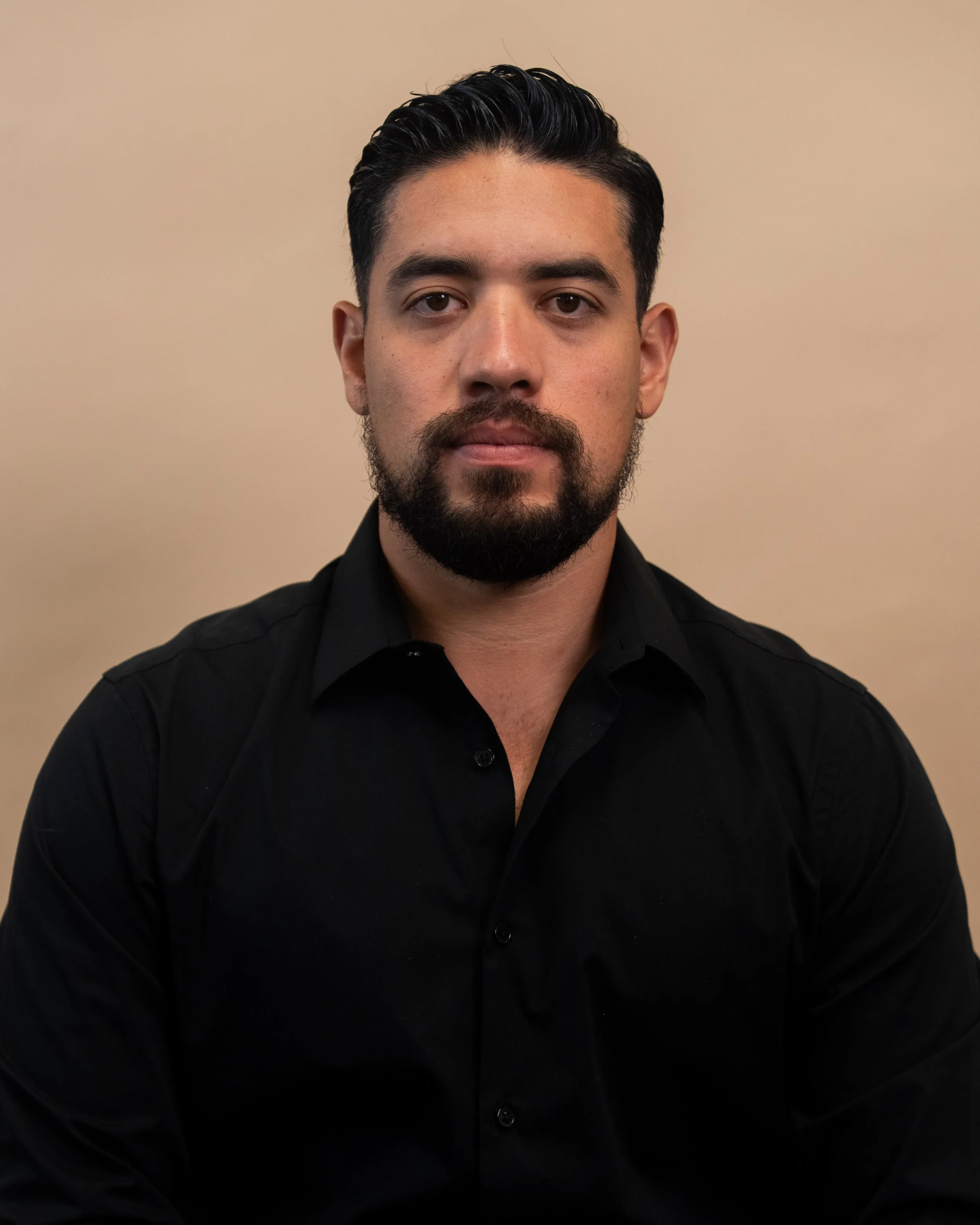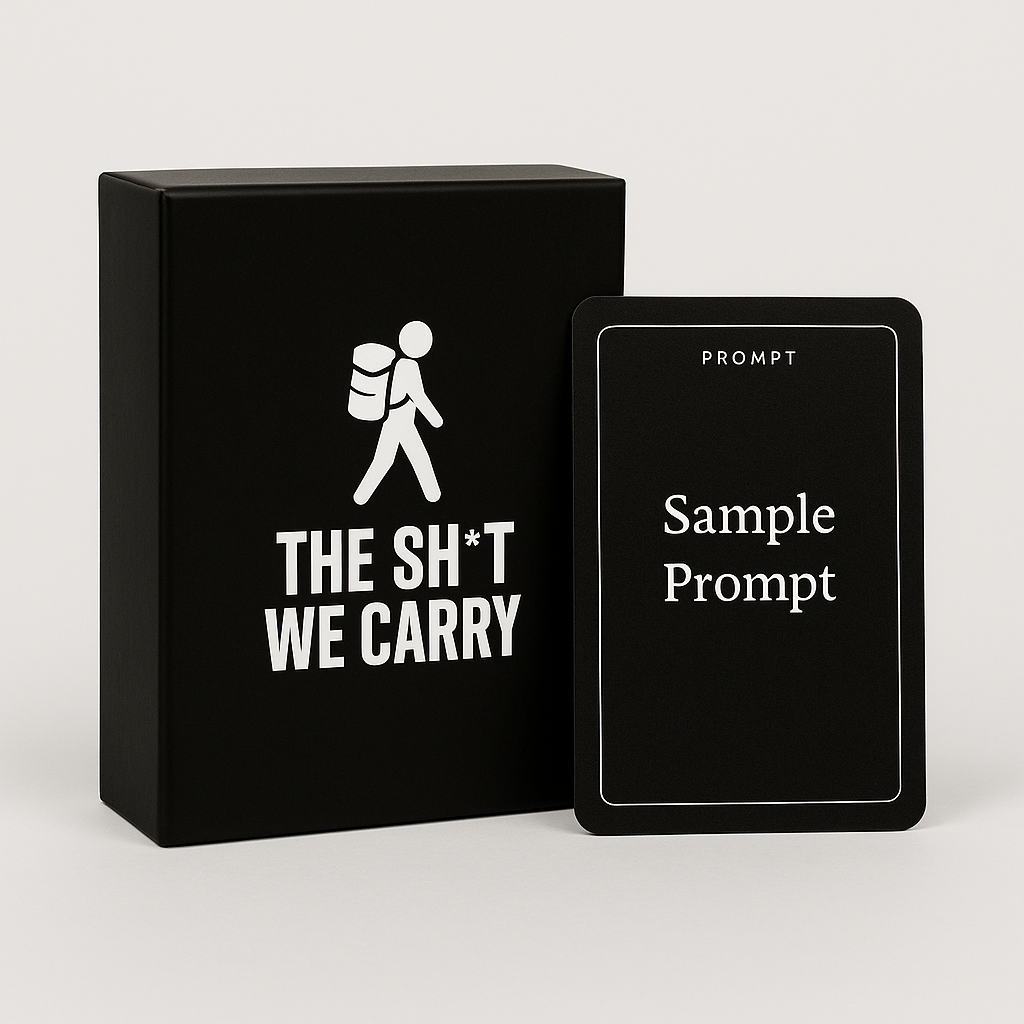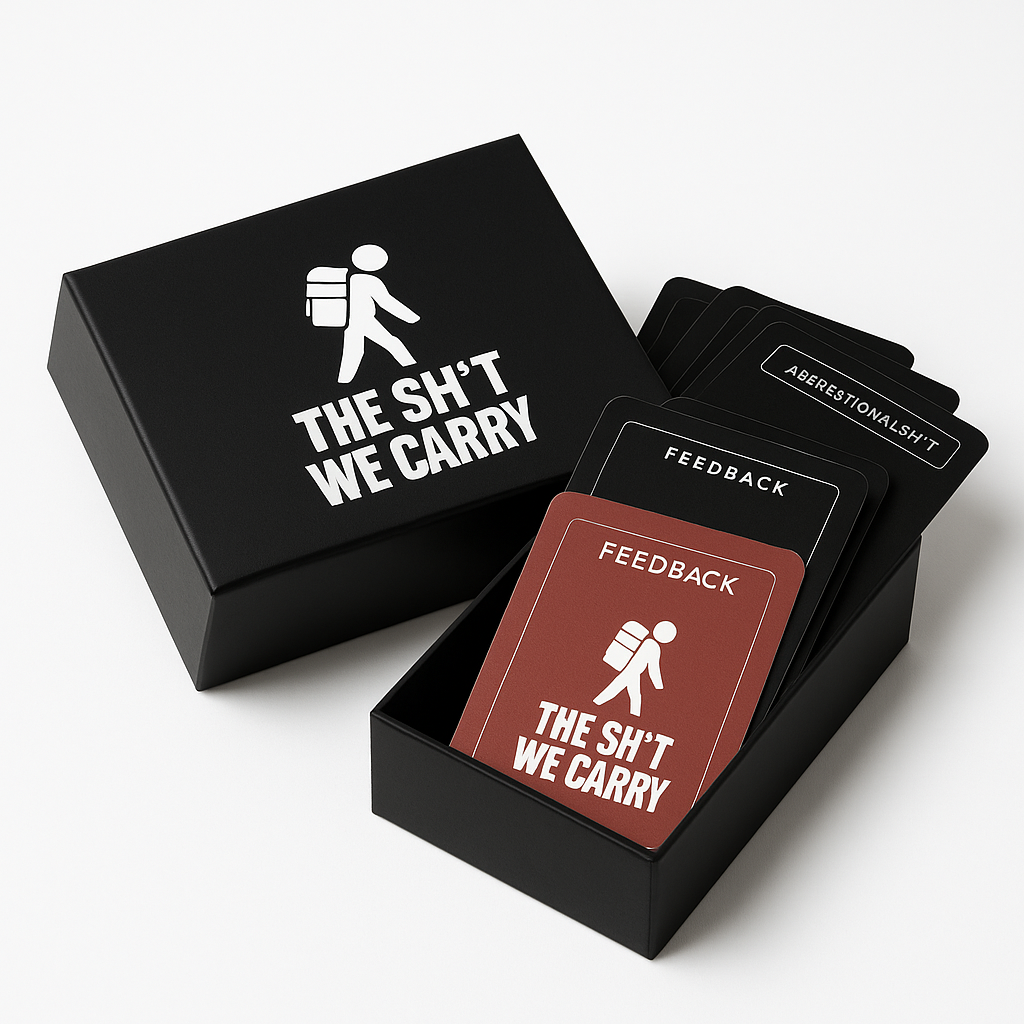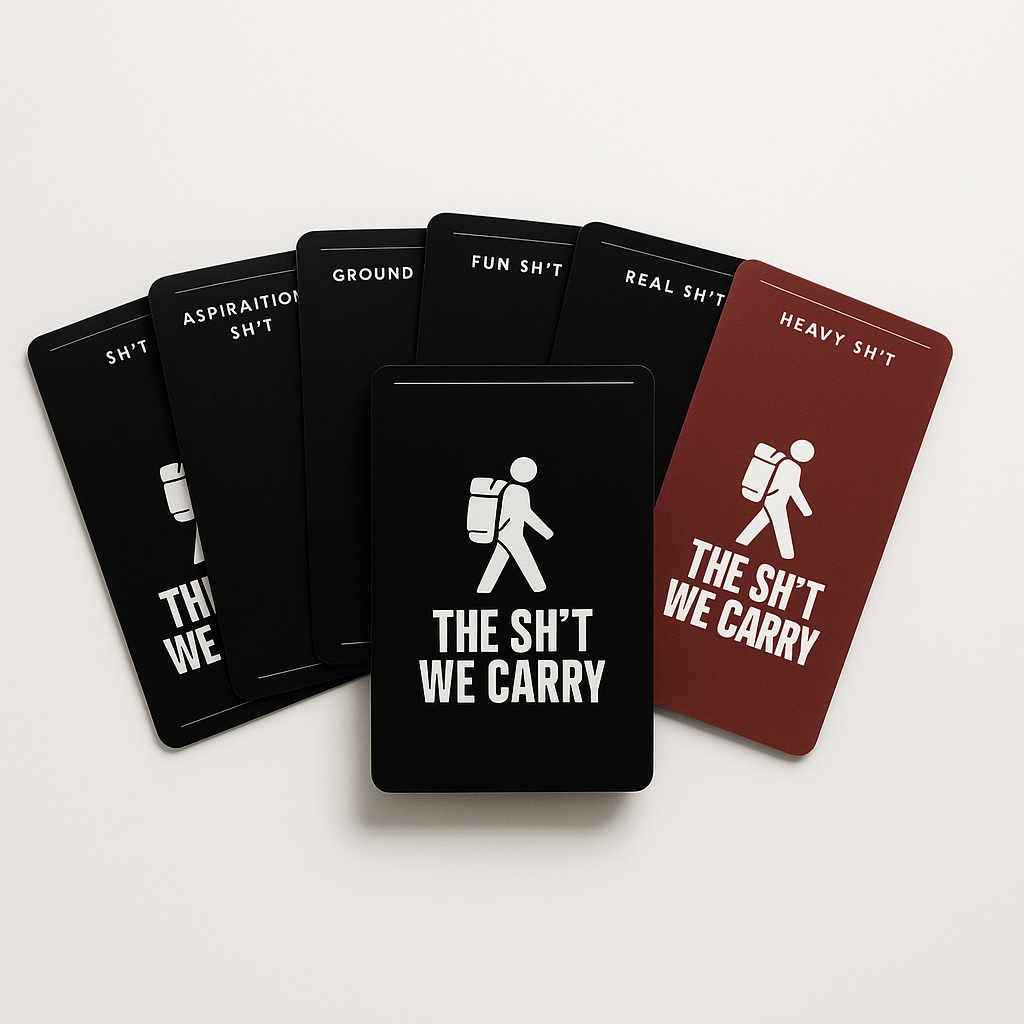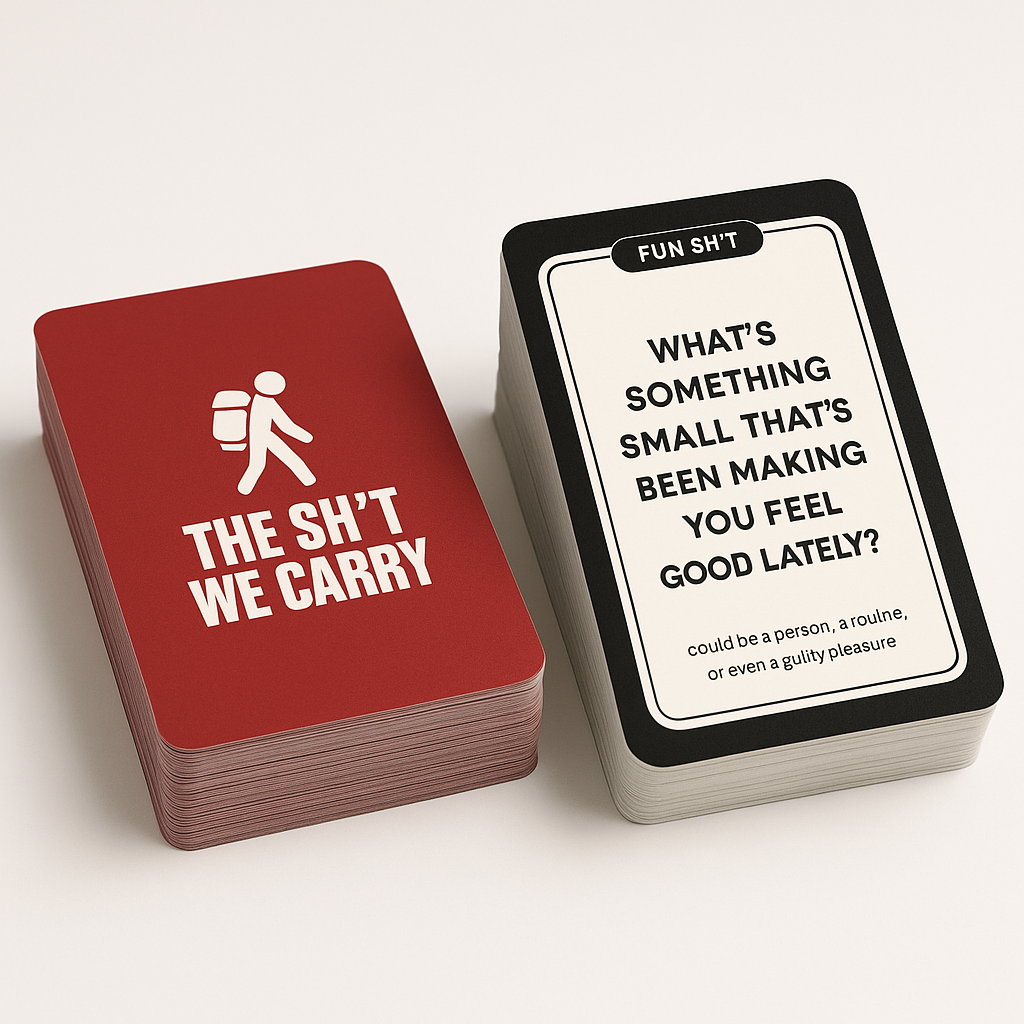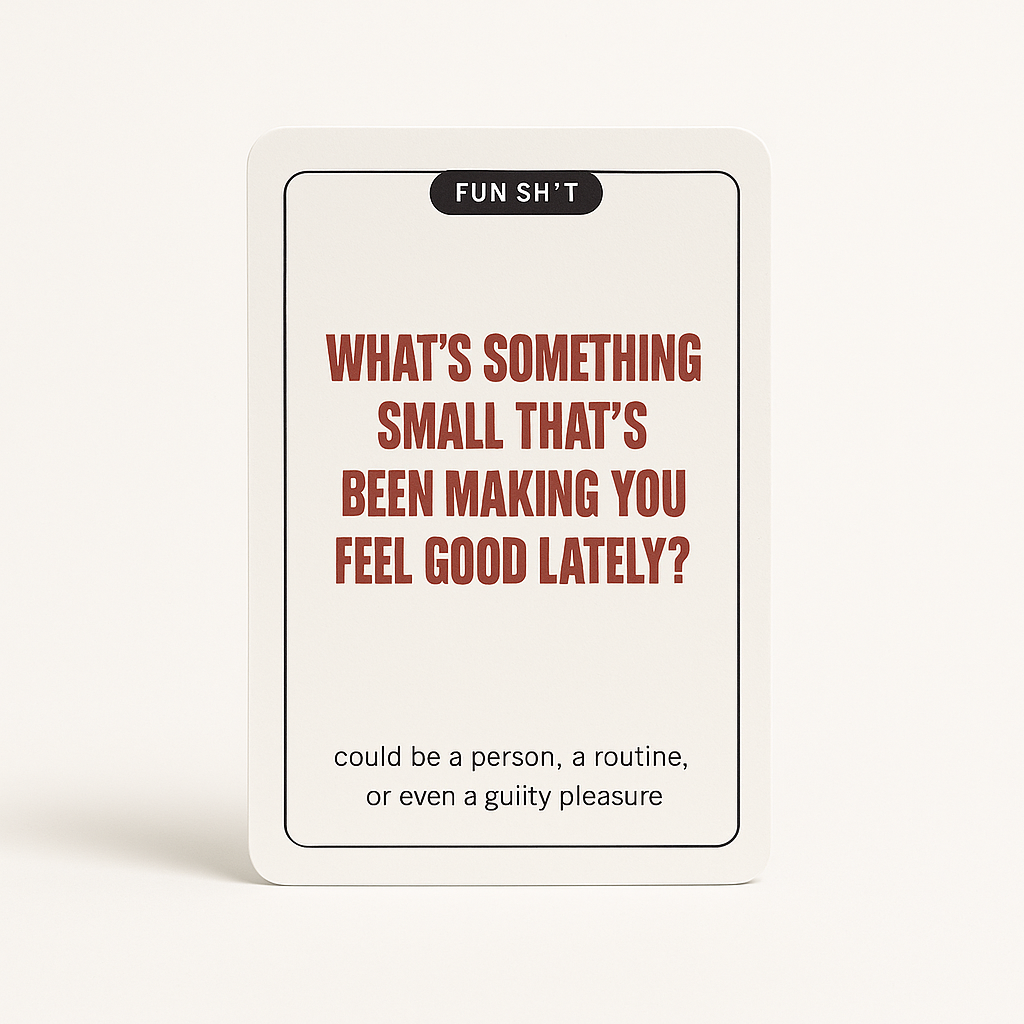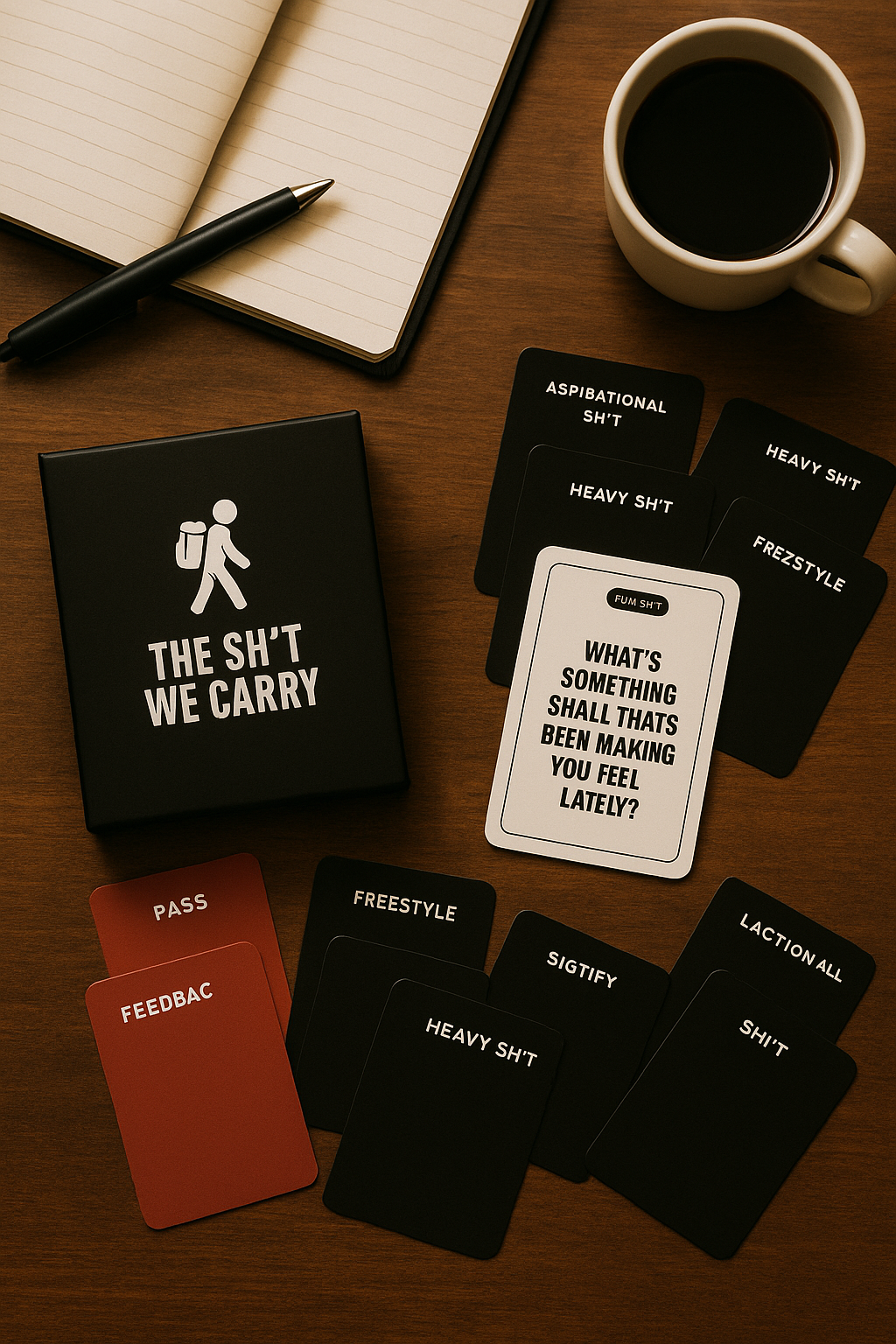The world’s lonelier than ever.
We’re more connected online and less connected in real life. Most people don’t have anywhere to be real anymore.
WE’RE HERE TO CHANGE THAT
BY HELPING people unburden the sh*t they carry, together.
You're not the only one
carrying heavy sh*t
Nobody taught us how to carry that shit together so that we're not crushed under the weight wondering why we're stuck and not where we want to be.
Loneliness hits the body like smoking up to 15 cigarettes a day.*
Omar Alexander Pedroza
( CEO / Co-Founder )
“We built The Sh*t We Carry because we Got tired of watching the people we love fall apart in silence.”
I grew up in a world where we all carried everything alone; family juggling trauma, poverty, and survival; friends laughing through pain no one ever asked about. Then I joined the Marines and watched the same sh*t happen to people trained to be unbreakable. Later, as I transitioned into the mental health profession, I saw it again: people showing up in crisis not because they were weak, but because they never had a place to be honest before the breaking point.
Silence was never meant to hold that much.
Traditional systems are important, but they’re hard to access and they don’t meet people early enough. Most people aren’t in crisis—they’re just overwhelmed, tired, and alone with their sh*t.
That’s the gap we’re filling.
TSWC is about making real conversation accessible. It’s not therapy. It’s connection infrastructure—something that helps people talk before they collapse.
The deck is just the start. The vision is a whole ecosystem of peer support that meets people where they are: culturally, emotionally, and in real life.
Because everyone’s carrying something, but none of us were meant to carry it alone.
Here’s your next step
The cards are designed to spark connection and keep it safe
THe CARD DECK
Science-Backed. Culturally Fluent. Stigma-Free.
We translate what science knows about healing into language people actually understand.
The nervous system. The need for belonging. The power of story. It’s all in here — just stripped of the jargon.
We build from evidence, but we speak from experience.
Because real connection doesn’t start in a lab — it starts in the room, between people who’ve lived it.
We speak your language, not therapist-speak.
You don’t need a diagnosis to deserve to be heard, or a degree to help someone else heal.
Vulnerability isn’t a weakness here — it’s a skill we practice together until it feels normal again.
Our approach is part science, part culture, part humanity.
That’s what makes it work.
We mix what’s proven with what’s lived — because healing has always belonged to the people.
Commonly Asked QuestionS
-
It’s a movement built around a trauma-informed card deck and community circles that help people open up, listen deeply, and unburden what they’ve been carrying.
It’s not therapy. It’s not self-help. It’s a return to what we were wired for — connection, honesty, and shared humanity.
-
You start with a deck of 100 prompt cards divided into five levels — from light to deep.
The structure guides groups from laughter and stories of strength to truth and release.
Each card helps you share what’s real, without pressure to perform or “fix” anyone.
-
No. You don’t need a diagnosis, a therapist, or a permission slip to have real conversations.
The deck is designed to help you express, reflect, and connect — whether you’re in therapy, between sessions, or have never gone at all.
-
Anyone who’s tired of small talk and ready for real talk.
People who’ve carried too much for too long.
Friends, families, students, teams, veterans, parents, neighbors — anyone craving safe, honest connection.
-
Anywhere people are craving something real — living rooms, rec centers, bars, dorms, workplaces, treatment programs, even parks.
All you need is the deck, a few people, and a little bit of willingness to show up.
-
Unburdening Counselors are trained community members who learn how to hold space safely.
They’re not therapists — they’re peers with lived experience and trauma-informed training.
Their role is to help guide circles and keep them grounded in safety, respect, and consent.
-
For people who need deeper or ongoing care, our clinician partners bridge the gap between community-based healing and professional therapy.
They understand culture, story, and trauma — not just symptoms.
Our goal isn’t to replace therapy; it’s to reconnect community and clinical worlds.
-
Not yet, but we have plans for it. We’re building a digital platform where you can join live unburdening rooms, connect with circles, and find support online — without social media noise or performative content.
Think less scrolling, more healing.
-
Yes — safety is the core of everything we do.
The cards and circles are trauma-informed by design: choice, consent, and boundaries come first.
You can always pass, pause, or step out. Vulnerability is an invitation, not a requirement.
-
Therapy focuses on the individual; we focus on the in-between — the spaces where people can connect before crisis.
We don’t diagnose, analyze, or fix. We witness, we listen, we remind each other we’re human.
That’s where real healing begins.
-
You can start by getting the deck, reading the facilitator guide, and inviting a few people you trust.
If you want to go deeper, apply for our Unburdening Counselor training when the next cohort opens.
You can also join local or digital circles through our community directory.
-
The standard deck is $39 during pre-order (ships December 2025).
Circles are free or donation-based — led by community members who believe in shared healing.
Training and partnerships are priced based on context, not profit.
-
We’re building a full ecosystem — decks that spark the conversations, circles that build belonging, counselors who hold the space, clinicians who bridge care, and a digital network where all of it connects.
The world doesn’t need more apps or diagnoses.
It needs spaces — and we’re building them, one conversation at a time.


